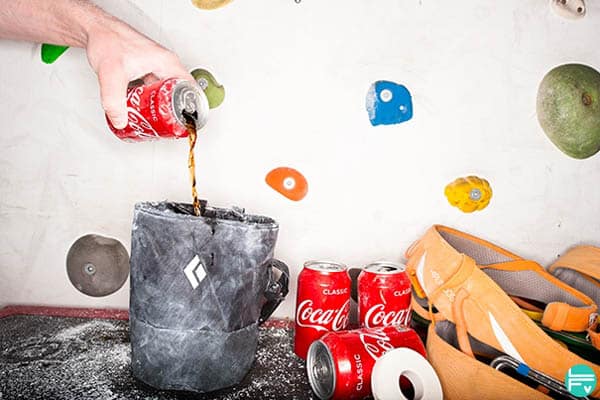Staying Hydrated : The Key to Climb Harder and send your projects

Every athlete has felt the symptoms of dehydration : headaches, muscle cramps, fatigue, dizziness, confusion, energy depletion. None of which are optimal for climbing hard. Don’t let dehydration be the thing that keeps you from sending. Staying Hydrated is The Key to Climb Harder.
Try managing a pump when your forearms are a cramped mess. And you’ll get the picture. When you’re on the final pitch of the day, and still have to belay up your four compadres and get down safely, you want to be feeling strong and mentally sharp. But at times it’s easy to forgo the fluids in the interest of “fast and light.” And it’s a big mistake.
Staying hydrated
There is more to staying hydrated at the cliff than simply drinking lots of water. To function properly and efficiently, our cells also require certain electrically charged minerals—electrolytes—that can be dissolved in water for easy absorption. “The contractions of our muscles are highly dependent on the presence of electrolytes,” says professional climber and licensed nutritionist, Katie Lambert.

“Without them we can experience changes in blood pressure, fatigue, lethargy, muscle weakness and muscle spasms.” We typically consume electrolytes from the fruits and vegetables in our diet. You can eat a hearty breakfast of electrolyte rich foods like bananas, bell peppers, and beans before a day of climbing. But electrolytes are quickly expended during exercise, so it is important to re-up on electrolyte levels throughout the day. It’s really important for staying hydrated.
Optimize performance
Sodium, potassium and magnesium are three electrolytes that work in conjunction with each other to optimize muscular and cognitive function. Sodium helps carry nutrients and neurological impulses to cells and facilitates muscle contraction. I.e., that key pulling force you need when cranking on a hold.

Conversely, potassium helps muscles to relax. So when you find that beloved no-hands rest, you can more quickly resuscitate your pumped-out forearms. Moreoever, a lack of potassium in the body leads to cramps and fatigue. Finally, magnesium helps muscle contraction, nerve transmission, and energy production.











